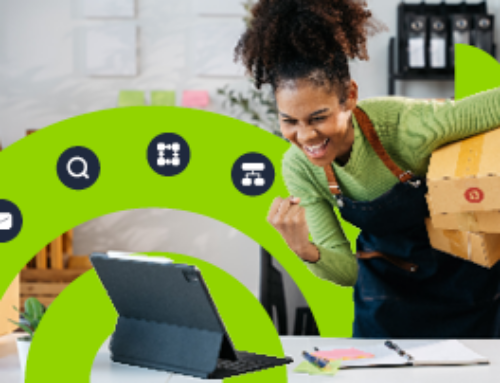If you haven’t already seen, we’ve taken a step-by-step approach to growing your business’s digital communication abilities by developing what we call the Everlytic Growth Journey. In it, we break the progression of mastering business messaging and marketing automation into three levels: Bulk Communicator, Message Personaliser, and Communication Automator.
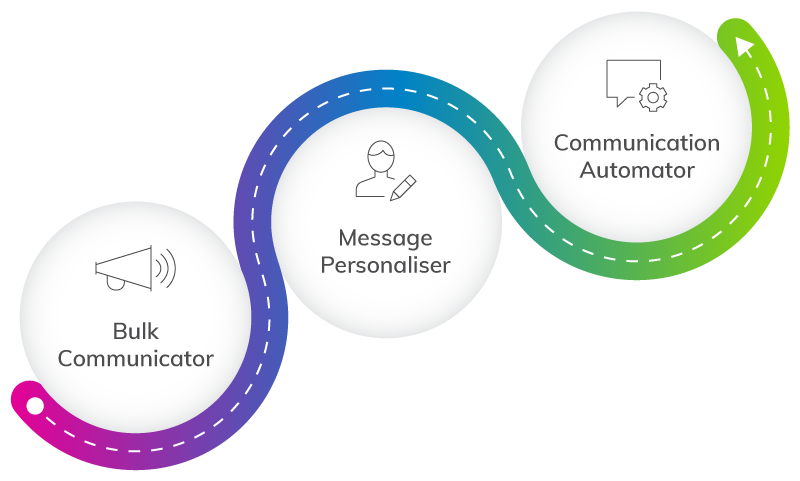
In this blog post, we explore the final level of this journey – the destination businesses often aim for with their strategic, functional messaging: putting it on autopilot. By automating messaging in this way, businesses save time, improve the customer experience, and optimise returns.
Benefits of Marketing Automation
It’s hard to imagine anyone not liking the idea of automation. Do less work and get good (and probably better) results? Yes please! Here are some of the greatest benefits businesses experience with communication and marketing automation:
It Boosts Productivity, Returns & Retention
Manually sending every message to every contact in your database is time consuming, and when time is money, it’s downright expensive. On the other hand, if you automate your marketing messaging, Nucleus Research says you could get an additional $5.44 returns for every dollar spent! Additionally, it could even increase employee retention because it gives people more time to work on tasks that engage and inspire them.
Here are some more stats from Instapage:
- 90% higher customer retention rates can come from omnichannel marketing automation.
- Automation boosts sales productivity by 14.5% and reduces marketing overheads by 12.2%.
It Personalises the Customer Experience
In 2020, a study by Walker said that the customer experience would become the key brand differentiator – overtaking price and product. In 2022, Techjury does a grand slam on that, sharing stats like:
- Businesses that focus on improving customer experience increase revenue by 80%
- 86% of customers are ready to pay more if it means getting a better customer experience
- You can double the revenue of your business in 36 months if you improve the customer experience to a satisfactory level
Marketing automation is a great way for your business to upgrade the customer experience throughout the customer journey. This is because, when you know what clients need at certain points in the journey, you can automate helpful messaging that supports them.
This doesn’t detract from the value your support team can add too, when issues arise, but it does free up your call agents’ time and capacity to provide support for more complex issues.
It Helps Maintain a Consistent Brand Voice
Your brand voice doesn’t just speak in marketing. It speaks from the moment someone learns about your brand, through conversion, to customer care, and beyond. In reality, the customer journey doesn’t look like a funnel at all – it looks more like an hourglass.
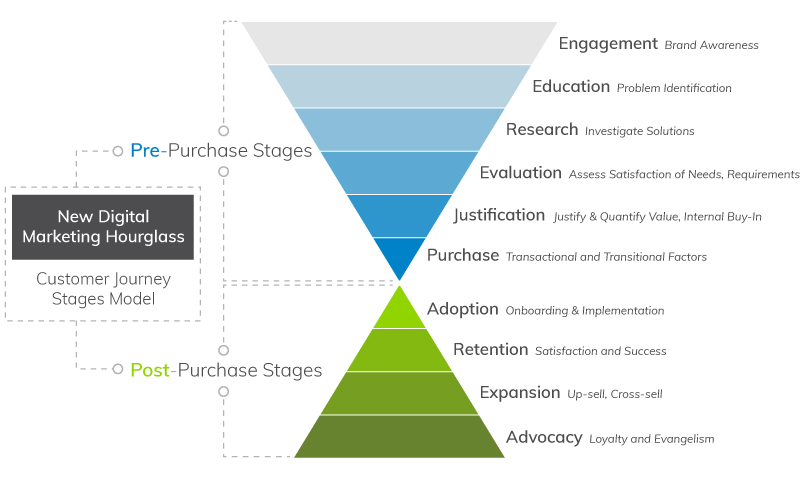
When you automate your communication, you manage a much broader portion of the customer experience. This improves engagement because it connects with customers using the same ‘personality’ that attracted them to your brand in the first place.
Examples of Marketing Automation
Okay, so you’re thinking about automating your communication. Now what? What exactly can you automate? Here are some common ways businesses automate messaging:
Welcome, Birthday, Or Anniversary Emails
Automated welcome emails are sent to subscribers or new clients immediately when they join or subscribe, and according to MarketingLand, they have an average open rate of 29% (compared to 24.97% for standard emails).
Birthday and anniversary emails also get exceptional engagement rates, largely because they’re sent on special occasions. In this case study, for example, Old Mutual gets a 77.8% open rate some months and as much as 3.5X the average click rate compared to the averages for the rest of the finance industry.
Client Or Employee Onboarding Journeys
Hopkins HR says that a strong pre-onboarding experience can help reduce absenteeism among employees and boost commitment. In other words: when you manage how employees feel and what they experience when they first join your company, they’re more likely to stay.
Automated messaging can help you do this. In fact, Century 21 does exactly that to onboard their new estate agents. This helps them keep new hires engaged, supported, and motivated while they’re finding their feet.
Employees aren’t the only ones who need onboarding either. Often, it’s the client, or user, who needs help getting started with your product or service. This supports your customer experience (one of the benefits mentioned above), and considering that 80% of users say they’ve deleted an app because they didn’t know how to use it, it’s worth paying attention to.
Event RSVP Confirmation Series
When people RSVP to an event you’re hosting, it’s helpful to automate messages confirming that you’ve saved a spot for them. Before the event, you can also keep registrants engaged with related content and reminders, so they’re excited and ready on the day. This may even increase attendance. Here’s an example of an RSVP workflow you can put together:
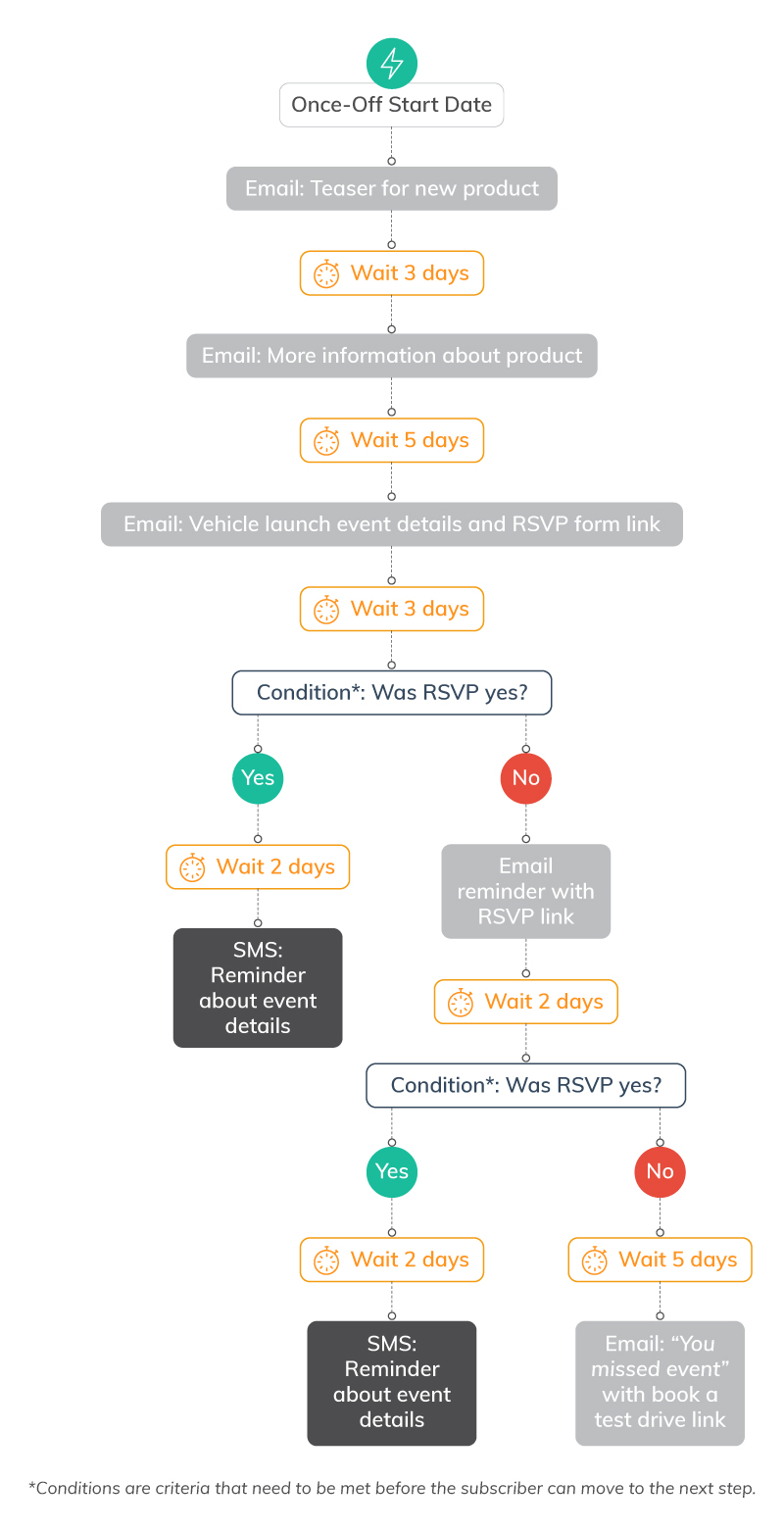
Workflows enable you to create personalised, automated message journeys based on customer data. What does this look like practically? Here are some more infographic examples like the one above.
Re-Engagement Message Campaigns
One of the most valuable things you can have in business is a returning customer. Marketing automation can help you get more clients coming back with re-engagement campaigns.
For example, Hyperli, an ecommerce platform, sent out a re-engagement sale to subscribers via email, targeting people in a specific region who hadn’t purchased in a while. By targeting this group with relevant messaging and deals in their area, they were able to get benchmark-beating engagements, winning back previously disengaged shoppers.
Thought Leadership or Educational Series
Got something that you can teach others? Automate it in a thought leadership or educational series. If you run an educational business, you can even integrate your learning platform with a message automation platform like Everlytic to trigger relevant messages at different stages of the learning journey.
Lead Nurturing Automated Journeys
Lead nurturing emails respond to leads as they come in and help you nurture them automatically through the sales cycle. Plus, they get 4-10 times the response rate compared to standalone email blasts.
The fact that a prospect doesn’t buy your product or sign up to your service immediately doesn’t mean that they won’t. You may just need to put in a little more effort to get them over the finish line. Learn more in our lead nurturing guide.
eCommerce Purchase Messaging
Email and ecommerce go together like cheese and tomato. It may be because, according to our research, recipients appear to want to receive promotional content via email and they like purchasing via email campaigns.
The most common ways businesses use marketing automation in ecommerce are via purchase confirmations, delivery updates, and abandoned-cart messaging. You can even send review requests a few weeks after the customer has received their product. Check out our ecommerce automation guide to learn more.
Communication Automator
Are you at or nearing the Communication Automator level of communication in your business? This article may help you decide. Here are some of the ways Everlytic supports you at this level.
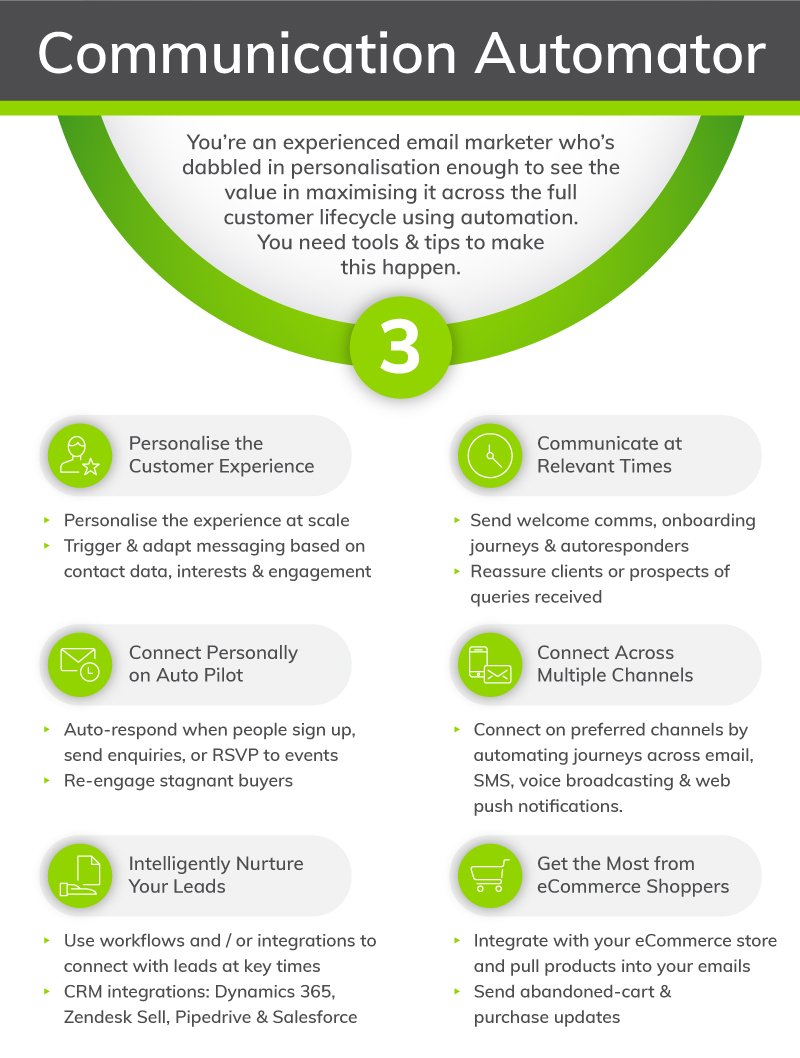
Automating your customer experience has many benefits, like improving business efficiency, returns, and even employee retention. If you’re ready to start implementing some of the automation examples covered above, reach out – Everlytic’s communication platform, support team, and guide material can help you get there one step at a time.







